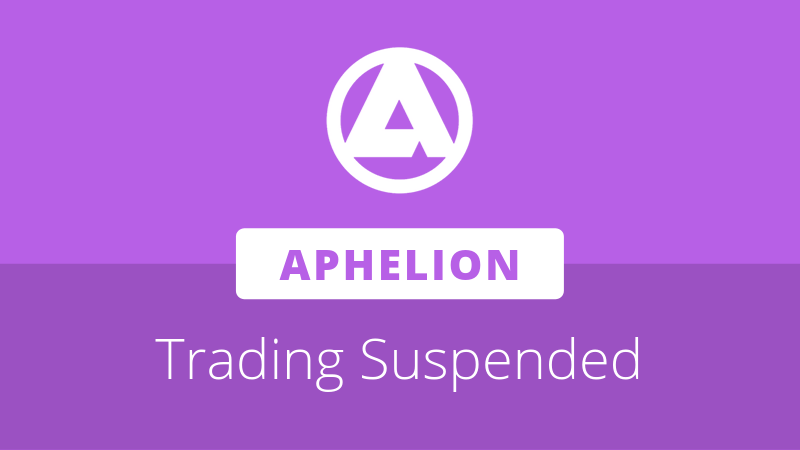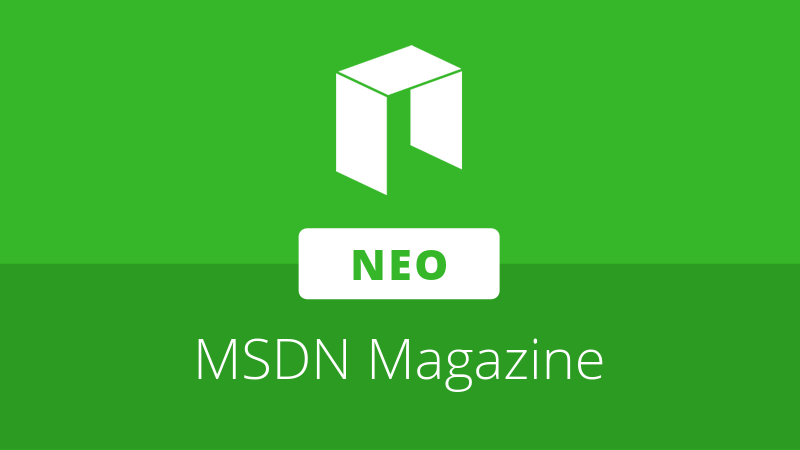
On Tuesday, October 8th, Aphelion announced it is taking steps to shut down its non-custodial exchange, citing that “the market has finally taken its toll.” The closing of its exchange came one day after Aphelion suspended all trading markets, except for the NEO/GAS trading pair. In its Telegram announcement channel, Aphelion stated:
It is with great disapointment [sic] we must report our groundbreaking DEX and project is taking steps to close down. After nearly 2 years and successful applications across all channels and 10s of thousands of lines of open source code that [sic] the market has finally taken its toll.
Ultimately, users are not using the DEX and trading NEO based assets overall, which makes the project unsustainable. We’ve been operating at a loss for all of 2019 and altough [sic] we raised capital to incorporate ETH and BTC into our wallet it was too little too late. That coupled with our current token value has lead to our decision. We wish the community and the industry the best moving forward.
Token sale and initial product launches
Aphelion’s public token sale was the second ever to be held on the NEO blockchain, which concluded in December 2017. At the time of the public token sale, 170 million APH tokens were made available with an aim to raise US $34 million equivalent in NEO, BTC, and ETH. According to various token sale tracking websites, Aphelion raised between US $4.7 million and US $6.7 million.
In April 2018, Aphelion launched the beta version of its desktop wallet on Windows, Mac, and Linux, which was compatible with NEP-5 tokens and built to integrate with the Aphelion non-custodial exchange. The launch was followed by the release of an Android version, which included features such as real-time trading chart data, a customizable address book, and complete NEP-5 token integration.
In July 2018, Aphelion updated its wallet to v2.0.2 and launched its non-custodial exchange onto the NEO TestNet. Trading functionality was built into the Aphelion wallet, which the team had touted as “world’s first wallet based DEX.”
In the months that followed, Aphelion released a mobile optimized browser-based wallet and an iOS equivalent to the Android version.
MainNet launch, temporary shutdown, and relaunch
In October 2018, Aphelion launched its non-custodial exchange on the NEO MainNet with initial trading support for six NEP-5 tokens. In its third week of its operations, Aphelion listed the NEX token, which at the time had just received regulatory approval as a security token.
While the general community questioned the legality of the listing, Aphelion had stated, “we’ve sought expert legal advice since our inception and have been consulted every step of the way and we [are] 100% confident in our legal compliance as the laws stand today.”
However, in November 2018, the US Securities and Exchange Commission (SEC) charged the founder of Ethereum DEX, EtherDelta, with operating an unlicensed exchange. The SEC indicated that EtherDelta had facilitated the trading of tokens that are securities under the federal securities laws.
Later in the month, Aphelion ceased its trading on the NEO MainNet citing “new SEC rulings, disastrous market conditions, NEO tech challenges, and diminishing cash flow.”
In December 2018, Aphelion re-launched its exchange onto MainNet, with a newly added know your customer (KYC) feature baked into the platform. Aphelion partnered with KYC compliance solution Identity Mind Global to circumvent SEC persecution by excluding US participants from trading on the platform.
Funding runs out, exchange closes
In January 2019, Aphelion lead developer, Jeff Solinksy (aka Jsolman), began to focus more of his efforts on the NEO blockchain and officially became a core developer through NEO’s core developer initiative. As a result, Solinksy contributed to Aphelion in a more limited role.
In the following months, Aphelion launched a desktop web version of its exchange and released API documentation.
However, in June 2019, Aphelion announced it been forced to halt development, citing low exchange volume and a lack of funds as reasons for the development freeze. In the announcement, Aphelion CEO, Ian Holtz acknowledged the project needed additional capital to continue development.
Later that month, Holtz stated the project had secured private funding following “an incredible week,” and had its Aphelion token (APH) subsequently listed on BitMart exchange but delisted from KuCoin.
Through the summer of 2019, progress from the team had been sporadic, with a token giveaway taking place, integration of BTC support, and ERC-20 support testing.
The last official update from Aphelion before the announcement of the exchange shutdown was delivered on September 3rd via a tweet, announcing a wallet upgrade to v4.1.0 with integrated ERC-20 token support.
Aphelion states it is now “taking steps to close down.”
The Twitter announcement of the exchange closure can be found at the link below: https://twitter.com/Apheliontoken/status/1181514759897780224?s=20







About The Author: Dylan Grabowski
Dylan is a reformed urban planner with a passion for covering the Neo ecosystem. His objective as a writer for Neo News Today is to report news in an objective, fact-based, non-sensational manner. When not behind a computer screen, he can be found in the mountains rock climbing. Find Dylan on Twitter (@GrabowskiDylan).
More posts by Dylan Grabowski